How to get scaa barista certification? What are the SCAA Coffee Certification courses? What is the content of the test?
Professional coffee knowledge exchange more coffee bean information please follow the coffee workshop (Wechat official account cafe_style)
What kinds of coffee certificates do you have? SCA Coffee Diploma six modules, CQI international certification
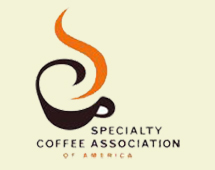
SCAA Foundations of Coffee Coffee Foundation (this is included in all certification courses)
CB100 Seed to Cup seed to Coffee
Basic principles of CP151 Brewing and Extraction Principles Cooking and extraction
Practice of CP152 Brewing and Extraction Principles Applied brewing and cooking
Brief introduction of GE103 Orientation to SCAA Cupping SCAA Cup Test
CP103 Customer Service Essentials customer service
Submit the result check list after Performance Checklists submitted after class class
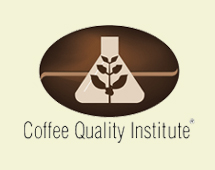
SCAA & CQI Q Grader Coffee quality appraiser
Qualified lecturers of the American CQI Coffee quality Association are invited to teach in Taiwan in person, and pass 6-day training courses (depending on progress) on coffee comparison test, acidity identification, taste threshold test, cup test, caffeine and cooked bean identification, so as to improve the individual's ability to evaluate coffee. Those who pass the test will receive the Coffee quality appraiser Certificate (Licen-sed Q Grader Certificate) issued by the American Coffee Association. And log his name on the association's website.
The test includes 20 coffee-related tests. Before the test, there will be a simple introduction to the process. The purpose of the test is to assess the participants' ability to appreciate coffee. For example, the grading of raw and cooked beans will let you know the shortcomings of various beans and how they are produced. What kind of flavor will it have on the coffee? Let the participants have a deeper understanding of coffee. Other programs are based on the students' sense of taste, smell and coffee appreciation.
Purpose of the test: to find out whether the participants can handle the quality of all the coffee from the raw bean to the last cup of coffee.
The content of the exam:
100 written examination questions are conducted in the form of multiple choice questions.
Test of 4 large coffee cups (washing, Africa, sun, Asia)
4 large coffee cups (washing, Africa, sun, Asia)
Coffee roasting detection
Grading of raw coffee beans
Identification of coffee raw beans and cooked beans
Olfactory sensory test
Taste sensory test
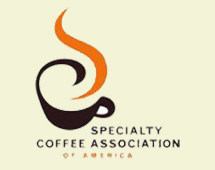
SCAA coffee gold cup extraction certification
The Golden Cup Master Certification course is one of the certification courses organized by the American Fine Coffee Association (SCAA). Through this course, you can learn a number of selected courses of SCAA, and in the "CB100-Seed to Cup" course, you can complete the process from a coffee seed to a cup of coffee presented to the customer. In addition to an in-depth discussion of all the relevant changes in coffee brewing, such as the ratio of water to powder, water temperature, grinding fineness and so on, the Golden Cup course is also a course that allows you to get to know coffee from scratch. This is an indispensable course for coffee practitioners and coffee lovers. After a detailed theoretical discussion, there are a variety of coffee brewing utensils to reflect each other's theories that you have learned in class. Finally, after passing the examination brought by the SCAA certified examiner, you can obtain the qualification of Golden Cup Master.
This is to verify whether the participants understand the brewing standards of SCAA coffee and the causes of the effects of coffee brewing. The course contents are as follows:
Foundations of Coffee Coffee Foundation
CP158 Golden Cup Brewing gold cup brewing
CP255 Brewing Approaches and Variations Cooking method and its causes
EXM_GW1 Written Exam written test
EXM_ GP1 Practical Exam practice Test
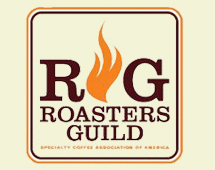
SCAA coffee roaster level 1 certification RGA level 1
Foundations of Coffee Coffee Foundation
CB200 Mill to Roaster: Green Coffee Price & Contract Impacts processing Plant to Bakery: coffee Raw Bean Price and contract impact
CB205 Green Coffee Buying Essentials Coffee Raw Bean purchase related knowledge
GE151 Green Coffee Grading raw bean grading
RP110 Basic Roasting Equipment & Operation basic baking equipment and operation
Introduction to the concept of RP112 Introduction to Roasting Concepts Baking
RP120 Profile Roasting Practices curve baking exercise
RP104 Decaffeination low caffeine treatment
Safety Essentials of RP208 Roaster Plant Safety Essentials Bakery
RP223 Sample Roasting sample baking
EXM_RW1 Written Exam written test
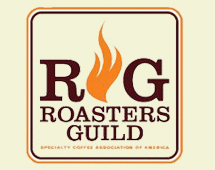
SCAA coffee roaster level 2 certification RGA level 2
CP101 Espresso and Milk Steaming Fundamentals part1 espresso and milk steaming 1
CP102 Espresso and Milk Steaming Fundamentals part1 espresso and milk steaming 2
Introduction to sensory Analysis of GE200 Introduction to Sensory Analysis
GE201 SCAA Cupping Form and Peer Calibration Cup Test Table and Calibration (Q grader is not required)
GE204 Defect Cupping defective flavor cup test
Analysis of GE206 Grinding and Grind Analysis lapping and lapping
GE304 Taste Testing for Production product tasting test
GE353 Coffee Tasters Flavor Wheel coffee cup tester flavor wheel
RP206 Coffee Farming:Digging Deeper than Seed to cup Coffee cultivation: more in-depth discussion than seed to Coffee
RP207 Coffee Processing Methods coffee processing method
RP216 Identifying Roast Defects distinguishes baking defects
RP218 Heat and the Roasting Machine thermal energy and roaster
RP225 Espresso Roasting espresso roasting
Basic packing of RP237 Coffee Packaging Fundamentals Coffee
RP324 Air Quality and the Roaster Baking Air quality and Bean Baking Machine
EXM-RW2 Roaster Level 2 Written Exam baking level 2 written test

SCAA espresso master level 1 certification BGA level 1
Course purpose
* how to identify the correct key points of Espresso
* step by step introduction and understanding of the definition and operation of SCAA espresso
* discuss the basic knowledge of powder mixing, powder blending and filling
* identify parts of Italian coffee machine
* make espresso according to the definition of SCAA
* making milk and beverages
* manage daily and continuous maintenance of Italian machines
* Common steps for confirming customer service
* discuss strategies to improve interactive services with customers
* discuss the role of boutique coffee bar masters in the boutique coffee industry
* identify the main tastes of four types of coffee
* understand the benefits of cup testing for professional purposes, including the relationship between cup testing and baking, as well as the requirements for caramelization
* recognize the three stages of coffee brewing
* to understand what is meant by ideal extraction
* Taste to distinguish the effects of proper and inappropriate extraction on coffee
* understand the SCAA cup test criteria
* understand the SCAA cup meter
* list and explain the elements of six kinds of coffee extraction
* basic knowledge of human sense of taste and smell
* Test 3 kinds of coffee to understand the SCAA cup test criteria.
* understand the changes of coffee at three different roasting levels
* distinguish between two different treatments of coffee
* understand the terminology of SCAA flavor wheel
Course Dagang
Foundations of Coffee Coffee Foundation
Main points of CP101 Essentials of Espresso Italian Coffee
CP102 Essentials of Milk Steaming Milk Cooking
Written Exam written test
Practical Exam practice Test

SCAA espresso master level 2 certification BGA level 2
Barista Level 1 Certificate must pass the first-level certification of espresso
CP201 Grind, Dose, Tamp, Extract grinding, proportioning, packing, extraction
Efficiency and process of CP202 Espresso Bar Efficiency & Workflow Italian Coffee Bar
The main points of CP203 Milk Essentials & Latte Art Practice Milk and the Art practice of drawing flowers
Preventive maintenance of CP204 Espresso Machine Preventative Maintenance Italian Coffee Machine
EXM-BW2 Written Exam written test
EXM-BP2 Practical Exam practice Test
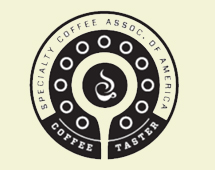
SCAA Coffee Taster Certificate Coffee taster Certification
Level 1: SCAA Coffee Taster Certificate Coffee taster Certification
Q-Grader Track has obtained the qualification of Q grader coffee quality appraiser.
Must be current Q-grader-must be Q-grader coffee quality appraiser within the validity period
CB100 Seed to Cup-seed to Coffee
Introduction to CP151 Introduction to Brewing & Extraction Cooking and extraction
Practice of CP152 Manual Brewing Practices brewing and cooking
CP103 Customer Service Essentials customer service
Introduction to sensory Analysis of GE200 Introduction to Sensory Analysis
GE204 Defect Cupping defective flavor cup test
EXM-CTW1 Written Exam on all classes of Level 1-written examination
EXM-CTP1 Coffee Taster Level 1 Practical Exam- implementation exam (not required by Q grader)
Coffee Taster Code of Conduct Coffee Tasters Code of Conduct
Non-Q-Grader Track did not get Q grader coffee quality appraiser.
Foundations of Coffee-Coffee Foundation (CB100,CP151,CP152,GE103,CP103)
Introduction to sensory Analysis of GE200 Introduction to Sensory Analysis
GE151 Green Coffee Grading raw bean grading
GE154 Sensory Skills Test Preparation taste test (drinking water)
GE204 Defect Cupping defective flavor cup test
GE153 Le Nez du Caf é coffee bottle
GE255 Organic Acids and the Chemistry of Coffee Organic acids and Chemistry of Coffee
GE303 Triangulation Cupping triangular cup test
GE201 The SCAA Cupping Form and Peer Calibration Cup Test Table and Calibration
Comparative Cupping: advanced cup test
GE202 World Regions production areas all over the world
GE203 African Coffees African Coffee
GE205 Central and South American Coffees Central and South American Coffee
GE154 Sensory Skills sensory skills
EXM-CTW1 Written Exam on all classes of Level 1-written examination
EXM-CTP1 Coffee Taster Level 1 Practical Exam- implementation exam (not required by Q grader)
Coffee Taster Code of Conduct Coffee Tasters Code of Conduct
Level 2: application of Coffee Tasting Applications Coffee Taste
Introduction to the concept of RP112 Introduction to Roasting Concepts Baking
RP104 Decaffeination decaf treatment
RP223 Sample Roasting sample baking
RP216 Roasting Defects defective bean baking
GE304 Coffee Tasting for Production product tasting
Study on CP302 Espresso Exploration Italian Coffee
GE206 Grinding and Particle Size Analysis Grinding and Particle size Analysis
GE217 Coffee Lab Equipment Coffee Laboratory equipment
GE308 Product and Consumer Testing products and Consumer testing
GE353 Coffee Tasters Flavor Wheel coffee flavor wheel
EXM-CTP2 & EXM-CTW2
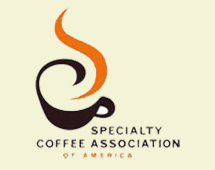
SCAA Coffee Trading first Class Certification
Foundations of Coffee Coffee Foundation
CB200 Mill to Roaster: Green Coffee Price & Contract Impacts processing Plant to Bakery: coffee Raw Bean Price and contract impact
Key points of purchasing CB205 Green Coffee Buying Essentials raw beans
Dynamic Analysis of CB206 Green Coffee Market Dynamics Explained Coffee Raw Bean Market
CB230 Production and Inventory Control Practices production and inventory control
The purchase principle of CB236 Buying on Green Coffee Market Principles in Raw Bean Market
Purchasing strategy of CB237 Green Coffee Purchasing Strategies raw beans
EXM-CBW1 Written Exam written test
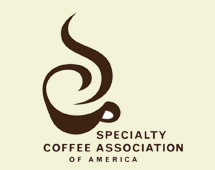
SCAA CB390 IDP instructor training Program course
The SCAA Lecturer training Program (IDP) is one of our most popular professional development programs. Boutique Coffee subject matter experts (SME) can improve their training and educational skills through adult learning principles workshops in the workplace, instructional design (based on the ADDIE model developed by American Social training and Development), testing, evaluation and classroom management. This course is aimed at students engaged in training in the coffee industry, but there are no formal courses in training courses, adult education, or organizational learning for the time being. The SCAA brings professional coaching qualifications, but also provides real skills such as instructional design, suitable for adult learning, classroom management strategies, theoretical learning and success criteria, test analysis and basic knowledge design, and so on. As a subsidiary of SCAA member Association Certification Excellence (ICE), the International Standards Organization (ISO), SCAA collaborates on the recommendations of our training program to ensure the most reliable and neutral experience for our participants, and the learning objectives of the project are as follows:
01. Recognize that education and training are an element of organizational success.
02. Located in the professional development department of SCAA.
03. Combine your company's mission, vision and strategic goals into your training plan.
04. Ability to work as a mentor and coach for SCAA.
05. Apply the principles of adult learning.
06. Recognize four key principles of adult learning-independence. Get ready. Experience. Application.
07. Adults learn theory, master basic knowledge, and begin to put translation theory into practice.
08. Identify the characteristics of adult learners and teach them in accordance with their aptitude.
09. Understand how to deal with adult learning information and develop strategic designs.
10. Set clear and measurable skills and knowledge goals.
11. The design description uses the ADDIE model for training and development of American society.
twelve。 Demonstrate professional speaking skills.
13. Evaluate students' performance and apply what they have learned at work.
.
Important Notice :
前街咖啡 FrontStreet Coffee has moved to new addredd:
FrontStreet Coffee Address: 315,Donghua East Road,GuangZhou
Tel:020 38364473
- Prev

A brief understanding of coffee certification logo all kinds of coffee bean certification logo pattern
Professional coffee knowledge exchange more coffee bean information Please follow the coffee workshop (Wechat official account cafe_style) Coffee Certificate what are there? SCA Coffee Diploma six modules, CQI international certification for sustainable development of coffee, refers to the coffee that consumers can feel at ease to taste. Care for coffee producers and production environment in order to continue to drink delicious coffee. Coffee is second only to coffee in the world
- Next

What are the coffee certifications? Coffee Certification Mark and Coffee quality Certification all over the World
Professional coffee knowledge exchange more coffee bean information Please follow the coffee workshop (Wechat official account cafe_style) Coffee Certificate what are there? SCA Coffee Diploma six modules, CQI international certification tropical rain forest protection certification Rainforest Alliance headquarters in New York-based worldwide non-governmental organizations. The task of the Tropical Rainforest Alliance is to change the way the land is used.
Related
- Beginners will see the "Coffee pull flower" guide!
- What is the difference between ice blog purified milk and ordinary milk coffee?
- Why is the Philippines the largest producer of crops in Liberia?
- For coffee extraction, should the fine powder be retained?
- How does extracted espresso fill pressed powder? How much strength does it take to press the powder?
- How to make jasmine cold extract coffee? Is the jasmine + latte good?
- Will this little toy really make the coffee taste better? How does Lily Drip affect coffee extraction?
- Will the action of slapping the filter cup also affect coffee extraction?
- What's the difference between powder-to-water ratio and powder-to-liquid ratio?
- What is the Ethiopian local species? What does it have to do with Heirloom native species?

